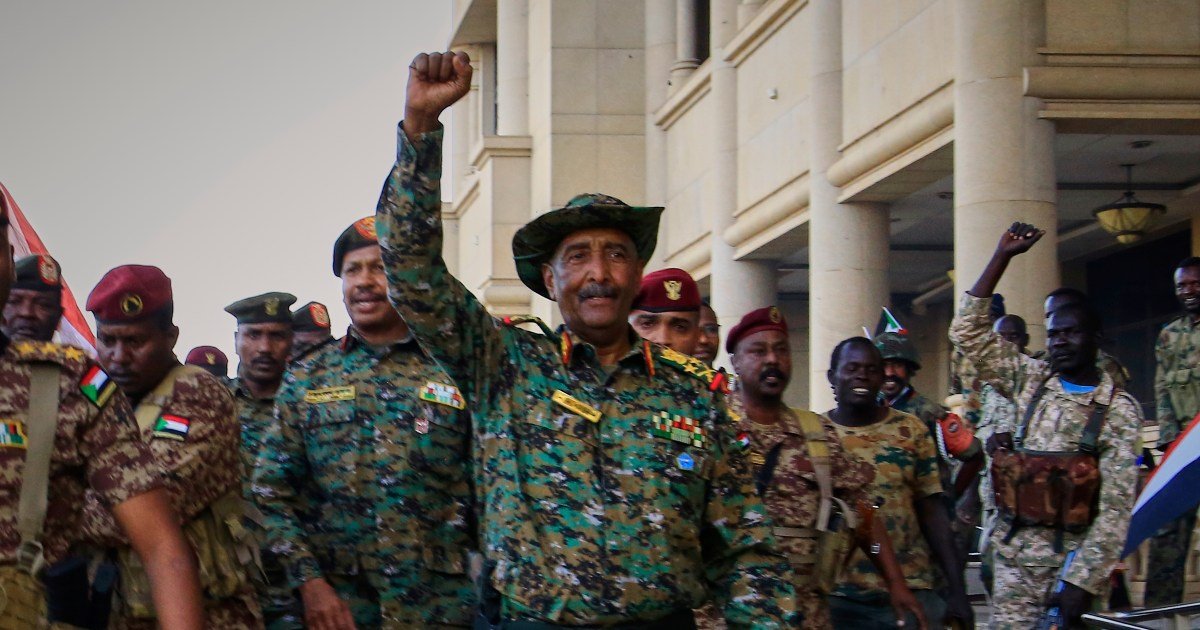Middle East
What’s happened in Sudan’s civil war after new Khartoum battles? | Sudan war News

Sudan’s army has scored some major victories in the capital, Khartoum, against the Rapid Support Forces (RSF) as the war between them nears the two-year mark.
But the fighting between the Sudanese Armed Forces (SAF) and its paramilitary rival, which has devastated the country, appears far from over.
There are fears now that the country’s territorial integrity could be jeopardised as the warring parties, each of whom has their own backers, look to entrench themselves in captured territories.
Which areas have the army taken?
The Sudanese army and its supporters are celebrating two big wins this month.
On Wednesday, army chief Abdel Fattah al-Burhan declared that the capital, Khartoum, is “free” after his forces recaptured the airport from the RSF, taking full control of the city and forcing paramilitary troops to flee southward.
The RSF had taken the airport at the onset of the war in April 2023, giving it a tactical and psychological edge.
The airport victory for the SAF came less than a week after its soldiers managed to recapture the presidential palace in Khartoum, a major symbolic victory in the counteroffensive SAF launched against the RSF in September last year.
Al-Burhan, the country’s de facto leader, announced the full takeover of Khartoum from the presidential palace, as he set foot in it for the first time in two years.
How will taking Khartoum affect the war’s future?
After RSF fighters captured parts of Khartoum early in the war, the city became an integral part of the conflict.
The army now hopes its recapture will mark a shift in battlefield momentum that could spread to other areas.
Its control over the capital could also affect international perceptions as both al-Burhan and RSF chief Mohamed Hamdan “Hemedti” Dagalo have been trying to court regional leaders.
The SAF has refused to engage in peace talks with its rival, but retaking Khartoum could give it additional leverage in any potential peace negotiations.
Controlling Khartoum airport allowed the RSF to use it as a supply and logistics hub, while leveraging it in its media and propaganda efforts to showcase its ability to challenge state power.
The army could now manoeuvre on the political symbolism of recapturing it, and the rest of Khartoum, and exert better control over supply lines.

Does this mean the war is nearly over?
The war erupted over disagreements between the heads of the army and RSF over the paramilitary’s integration into Sudan’s armed forces.
That dispute is only more entrenched, and the army and the RSF remain in control of large swaths of land each while remaining engaged in fierce clashes, so the war-torn country is unlikely to experience peace soon.
Along with some areas surrounding Khartoum, fighting is continuing in the huge Darfur region to the west of Sudan, the Kordofan region in central and southern parts of the country, and Gezira state, a strategic agricultural hub located south of the capital.
Neither side has managed to strike a knockout blow to the other, and there is no sign of a political settlement or peace process in the near future, while each side continues to enjoy the support of its regional backers.
In fact, the army and the RSF have increasingly launched massive air strikes in urban areas, leading to many civilian deaths.
Volker Turk, the United Nations High Commissioner for Human Rights, said in a statement on Wednesday that he was “deeply shocked” by reports that hundreds of civilians were killed in a strike this week on a busy market in the town of Tora, located northwest of el-Fasher city in North Darfur.
What are the humanitarian effects of the war?
The power struggle between the two generals and their forces has led to one of the worst humanitarian crises in the world, which shows no signs of abating.
More than 12 million people have been forced to flee their homes, many to neighbouring countries like Chad, South Sudan and Ethiopia. Countless people are living in makeshift shelters, camps or host communities with extremely limited resources.
Local communities and international organisations continue to volunteer help, but a hunger crisis is squeezing the population and famine conditions have emerged in parts of Darfur and other areas.
Nearly 25 million people are suffering from dire food shortages, 600,000 of whom are “on the brink of starvation”, a UN report recently warned.
Both sides in the conflict have been accused of blocking aid from reaching areas controlled by the other, while the RSF has been accused of systematically looting supplies.
In addition, agricultural disruptions due to the fighting have slashed food production.
Sudan’s health system has largely collapsed, with hospitals destroyed or occupied, and millions of children are in urgent need of assistance.

What happens next?
Sudan’s civil war could ultimately lead to the country’s partition or de facto fragmentation, experts and stakeholders like the African Union have warned.
This comes after the RSF and its allies last month signed a “founding charter” for a breakaway government, a move that garnered “grave concerns” from the UN Security Council as well.
South Sudan’s 2011 secession came after similar strife and dual power structures that have wrought havoc for decades.
In the short term, the most likely scenario appears to be a war of attrition amid an international push for further negotiations as neither side has signalled it is willing to compromise.
